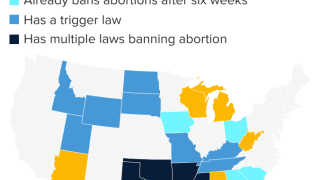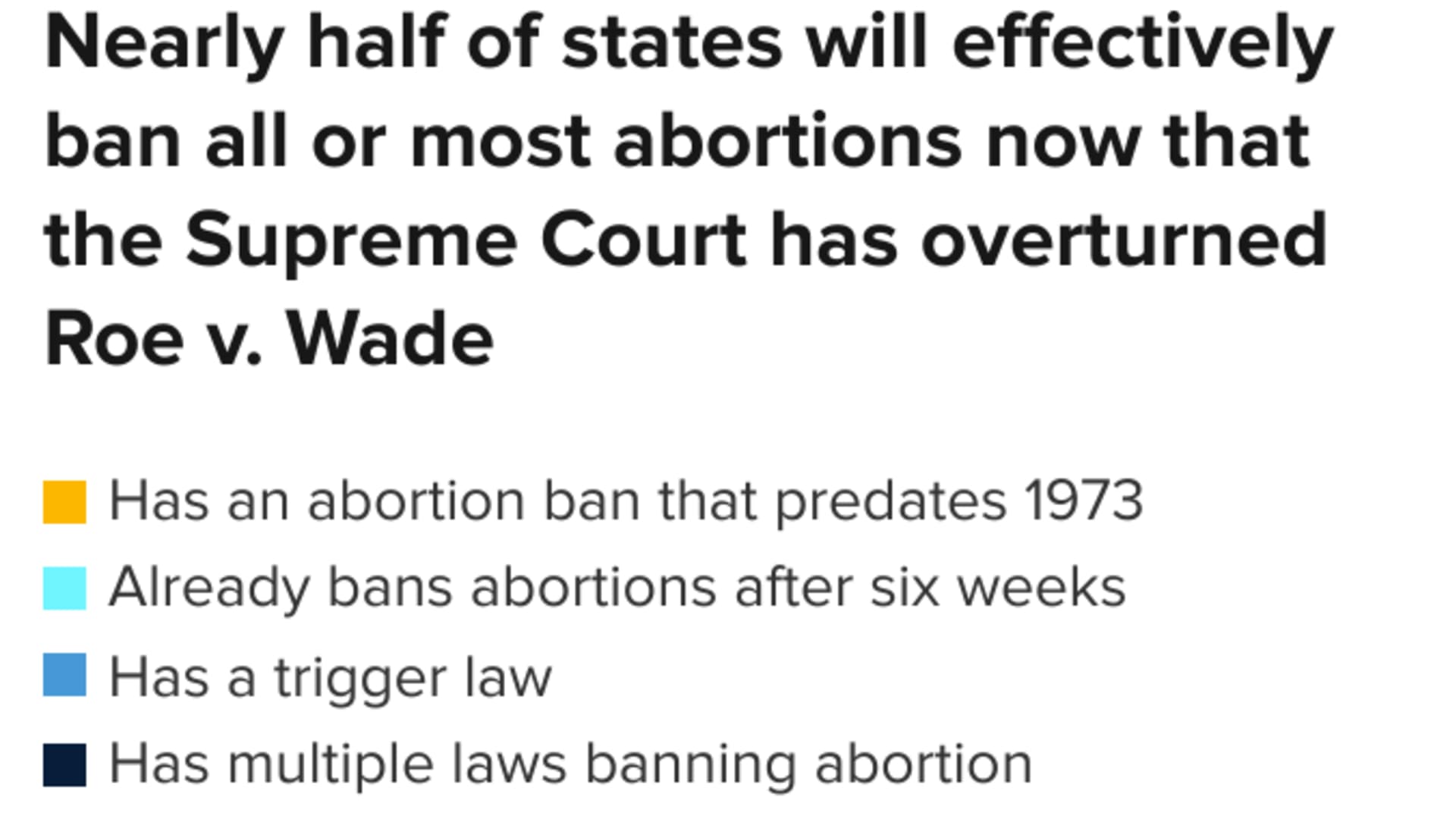
- The overturning of Roe v. Wade is set to almost immediately remake how access to abortion looks in America.
- Twenty-two states had laws or constitutional amendments that were already in place which could be quickly used to try to ban abortion.
- The laws include bans on abortion that were already in place in a number of states before the Supreme Court's 1973 decision in Roe protected abortion rights.
WATCH ANYTIME FOR FREE
Stream NBC10 Boston news for free, 24/7, wherever you are. |
The overturning of the landmark Roe v. Wade ruling by the Supreme Court is set to almost immediately remake how access to abortion looks in America, with nearly half of the states on track to outright ban or severely limit the procedure.
Twenty-two states had laws or constitutional amendments that were already in place which could be quickly used to try to ban abortion as a result of the decision, according to the Guttmacher Institute, a leading reproductive rights advocacy group.
Get updates on what's happening in Boston to your inbox. Sign up for our News Headlines newsletter.

The laws include bans on abortion that were already in place in a number of states before the Supreme Court with its 1973 decision in Roe ruled that there was a constitutional right to abortion.
Other states have so-called trigger laws that would ban abortion in the event that Roe was overturned by the high court.
Money Report
And a dozen states would ban abortion after six weeks, which abortion-rights advocates argue is effectively a ban on the procedure, as most people are unaware they are pregnant by that time.






